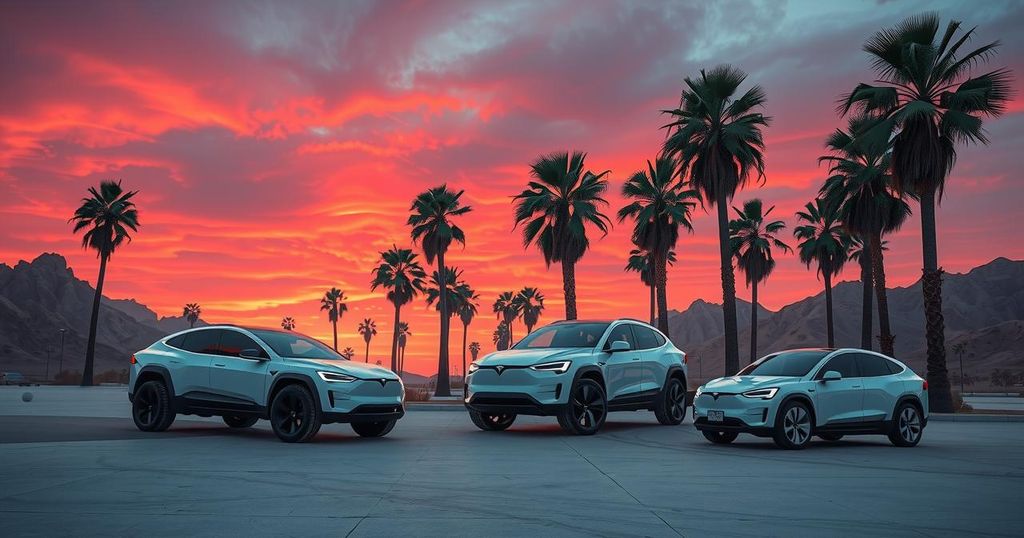Tesla Launches Operations in Saudi Arabia, Highlighting EV Ambitions

Tesla has launched operations in Saudi Arabia, marking improved relations between CEO Elon Musk and the kingdom. The initiative comes during a period of declining sales for the EV maker, and aims to meet ambitious electric vehicle adoption goals while facing competition from other EV brands. Plans for infrastructure expansion were announced, though significant challenges remain.
Tesla officially launched operations in Saudi Arabia on Thursday, signifying improved relations between CEO Elon Musk and the kingdom. The event featured a Cybertruck and a redesigned Model Y, attracting a small crowd eager to experience the vehicles alongside a massive screen displaying the Cybertruck navigating through a desert landscape.
The rollout comes at a critical time for Tesla, which reported a 13% decline in first-quarter sales, the lowest in nearly three years. Factors contributing to this setback include Musk’s controversies, growing competition, and an aging vehicle lineup, even with the refreshed Model Y now available.
Saudi Arabia, determined to reach a 30% adoption rate for electric vehicles (EVs) in five years—up from only 1%—is investing in its EV infrastructure. Musk’s past conflicts with the kingdom’s sovereign wealth fund over investment discussions appear resolved, largely influenced by Trump’s looming visit to Saudi Arabia.
Local Tesla representatives during the launch detailed plans for online vehicle orders, pop-up store openings in malls, and the establishment of Supercharger stations. However, Musk was notably absent at the event, disappointing fans like Mohammed Usama, who expressed his eagerness to see the CEO in person.
Despite the ambitious goals, Saudi Arabia faces considerable challenges in infrastructure with no EV charging stations along a crucial 900-kilometer highway between Riyadh and Mecca. Current data indicates that Saudi Arabia had only 101 EV charging stations in 2024 compared to the UAE’s 261, despite having a smaller population.
Competitors such as BYD, Zeekr, and Lucid already established a presence in Saudi Arabia, highlighting the competitive EV landscape. Musk’s earlier dispute over funding with the governor of the Saudi sovereign wealth fund was significantly indicated by a text where he claimed he felt betrayed, underscoring the complexity of their relationship. Following the recent U.S. elections, there were shows of camaraderie between Trump, Rumayyan, and Musk, signaling an improved rapport between the parties.
In summary, Tesla’s launch in Saudi Arabia reflects a significant turnaround in its relationship with the kingdom and showcases the nation’s commitment to enhancing its electric vehicle adoption rate. Despite infrastructural challenges and rising competition, Tesla plans to expand its presence by offering online orders and establishing charging stations. However, the company’s recent sales decline underlines the urgency for innovative strategies and better engagement with customers.
Original Source: www.usnews.com





